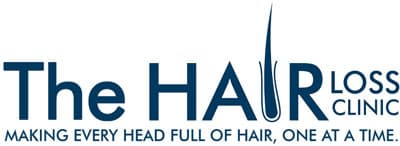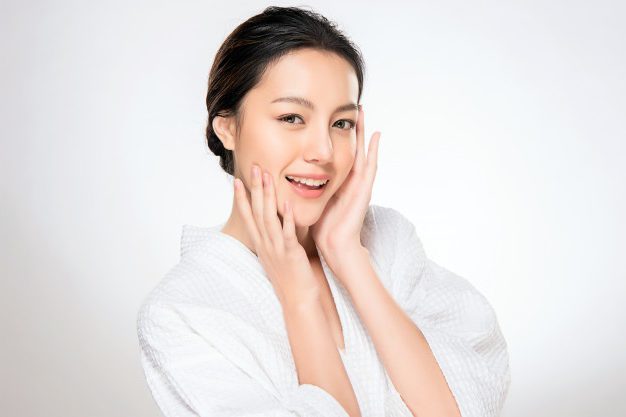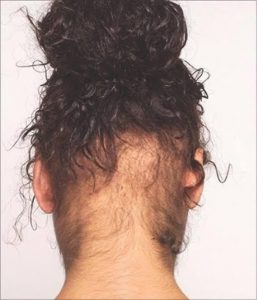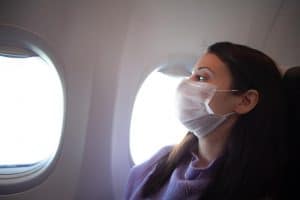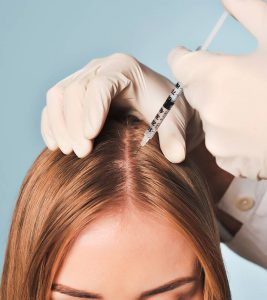About Autoimmune Conditions
by Tony Pearce RN.
Specialist Trichologist, National Trichology Services
Autoimmune problems are similar in that they affect people with an inherited predisposition to develop them, and are triggered into activation by some initiating factor. Different autoimmune conditions are also frequently seen within related members of extended families. These families are referred to as “atopic”, meaning that they have a genetically inherited hypersensitivity to certain foods, chemicals, and/or their general environment.
Autoimmune problems can involve any system, organ or tissue of our body, and the scalp is commonly affected. Conditions such as psoriasis may only involve the cells of the outer skin, leaving the hair relatively unscathed. Some may influence both, causing hair loss of usually a temporary nature – alopecia areata being one example. Still others “scar” the skin destroying hair follicles and other underlying skin appendages as they progress. These are collectively termed “ciccatricial” alopecia and include folliculitis decalvans, pseudopelade, lichen planoplanarus, and ‘lupus’ (discoid type). Permanent hair loss results from cicatricial alopecia.
It is now thought that certain primary factors – some linked to the person’s blood type – activate an autoimmune disorder. One such factor may be severe or prolonged physical/emotional stress and anxiety. At these times the body’s complex hormonal pathway for dealing with stress can become hypersensitive and dysfunctional, leading to an exaggerated stress response. Systemic illness or infections – including the body’s reaction to the causative organisms, the taking of certain medications, food allergies, or contact with substances not previously exposed to may also trigger an autoimmune disorder in a susceptible person.
Most of the autoimmune problems that affect the hair and scalp can now be treated and at least stabilised by a variety of therapies, which are often used in combination.
Current treatments for alopecia areata involve the use of ‘immunomodulators’ alone or in combination with biologic response modifiers such as Minoxidil topical solution. An immunomodulator suppresses or increases the body’s immune response either locally or systemically.
Corticosteroid injections,lotions or tablets, as well as contact sensitisers (Anthralin, DPCP) are the common immunomodulators. “Next generation” topical immunomodulators such as ‘Protopic’ or ‘Prograf’ (tacrolimus) are gaining increasing favour with Dermatologists for the treatment of intractable alopecia and psoriasis.
Minoxidil is the only topical solution medically approved to stimulate follicle hair growth. 5-10% strength prescription formulas that are propylene glycol-free and contain absorption additives/androgen blockers are usually more effective, and with less potential side effects than the commercially purchased brands.
L-tyrosine amino acid is also an immunomodulation therapy that trichologists have successfully used in treating autoimmune diseases that affect the hair and scalp. Tyrosine helps reduce the skin’s neuropeptides, which in turn decreases lymphocytic (white blood cell) infiltrate surrounding the hair follicle.
Whilst Tyrosine is considered a very safe oral supplement, it’s contra-indicated in persons with a history of epilepsy. Migraine headache sufferers are advised to use caution as Tyrosine can induce headaches in some and relieve them in others.
Active Folliculitis Decalvans is often accompanied by severe inflammatory reaction and pustular eruptions across the scalp. In susceptible people it’s thought their skin initiates an exaggerated immune response to the toxins of Staphylococcus Aureus bacteria. Medical practitioners will often prescribe topical and oral combinations of antibiotics to treat this form of scarring alopecia.
Photo-biotherapy such as “soft” laser light can also promote an immunomodulating response. These are non-UV light sources, and their treatment potential for autoimmune conditions is continuing to be evaluated.
About the Author: Tony Pearce is a Specialist Trichologist & Registered Nurse. He is a founding member of the Society for Progressive Trichology & the official lecturer for Analytical Reference Laboratory (ARL) for hair loss & hormone imbalance. In Australia he can be contacted on +61 2 9542 2700, or through his website at www.hairlossclinic.com.au. Copyright Anthony Pearce
Copyright Anthony Pearce 2005. *References for this article available on request.
